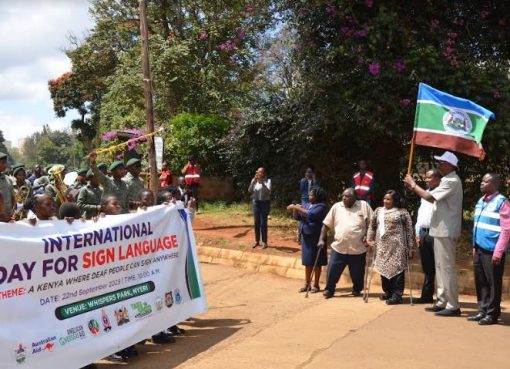Kegoosho women group in Kiekonyokie, Kajiado West constituency have reaped a bumper harvest of cow peas and yellow beans after embracing climate smart agriculture.
The crops were grown using solar powered drip irrigation, with support from the Arid Lands Information Network (ALIN) through their project dubbed, Powered by the sun.
ALIN’s Communication and project officer Joy Kolin said that it was necessary for Kajiado residents to embrace Climate Smart agriculture as the county is one of the semi-arid areas, worst hit by the recent drought as they mostly practice pastoralism.
“Apart from pastoralism, we are introducing climate smart agriculture, where local farmers can grow their crops and vegetables using solar powered drip irrigation not only for their own consumption, but also for sale to get profits,” she said.
Kolin further added that even as drought keeps on recurring in the area due to adverse effects of climate change, residents will be able to continue feeding themselves should they embrace climate smart agriculture, instead of depending on the government for relief food.
Kiekonyokie ward agricultural officer Faith Soita on her part remarked that women in the group have been trained for four months on the best crops to grow in their farms to ensure profitable farming.
A member of the Kegoosho women group, Beatrice Kores says they have really benefited from the training as they can now plant crops using little water through irrigation so that they have food at all times, unlike before when they depended entirely on rains to have food.
Another member of the group, Esther Shonko, added that they were now able to provide their families with a balanced diet, more so after embracing kitchen gardens in their homes.
“We have been trained on drip irrigation and with even little water, we can now plant and harvest cowpeas and yellow beans. This is now profitable farming unlike before when we solely depended on rainfall, which often failed, leading to huge losses,” said Shonko
On her part, Ann Kool, also a member of the group said initially they largely depended on livestock for sustenance, which is no longer tenable due to perennial drought in the region.
However, the commencement of drip irrigation has greatly benefitted them, as they can now sell their produce to fend for themselves, whether it has rained or not.
Better still, after harvesting the cowpeas and yellow beans, members of the Kegoosho women group have come up with a plan to plant onions for even more gains.
By Diana Meneto and Sammy Rayiani




